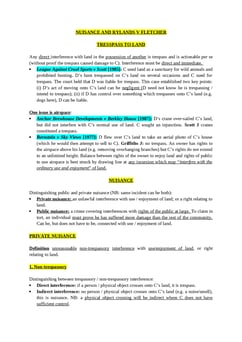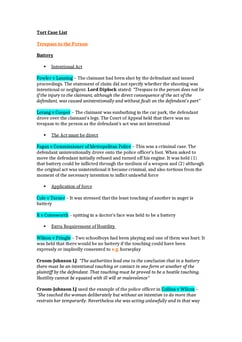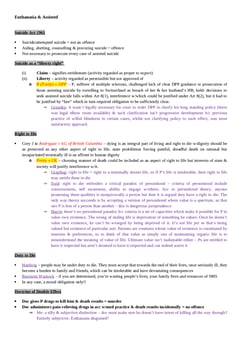Galli-Atkinson v Seghal [2003] EWCA Civ 697; [2003] 3 WLUK 635
Judgement for the case Galli-Atkinson v Seghal
Table Of Contents
KEY POINTS
-
Psychiatric injury stems from emotional and psychological harm following traumatic events, impacting mental well-being.
Proximity to the event intensifies reactions, emphasizing the connection between mental health and traumatic experiences.
Closeness to a traumatic event during its immediate aftermath influences emotional responses and coping strategies, underscoring the significance of understanding these dynamics for assessing mental health needs.
Exploring genetic, environmental, and experiential factors is key to understanding the causation of psychiatric illness, particularly how traumatic events can trigger or exacerbate mental health disorders.
-
In legal cases revolving around psychiatric injury claims, the invaluable insights provided by expert testimony from psychiatry professionals is important.
This specialized input not only facilitates a deeper understanding of the nuances associated with mental health issues but also serves as a tool in establishing liability and meticulously assessing damages.
The nuanced perspectives and analyses offered by these experts significantly contribute to the process in the inherent cases of psychiatric injury claims within the legal world.
Legal precedents and control mechanisms guide the handling of psychiatric injury claims, providing a framework for consistency and fairness within the legal system.
FACTS
The case centered on a fatal accident resulting in the death of the Appellant's child, Livia, at 7:05 pm.
-
Giullietta Galli-Atkinson ("Appellant/Claimant") sought damages for psychiatric injury from the accident and its aftermath. She arrived at the scene at 8:20 pm, part of the immediate aftermath.
Around 9:20 pm, the Appellant visited the mortuary to identify her child.
The purpose of the visit became a key point of contention.
Psychiatrists Professor Weller and Dr. Fry provided opinions, with Weller linking the death's circumstances to the Appellant's psychiatric condition.
The court explored legal principles regarding psychiatric injury claims, focusing on the immediate aftermath and visit purpose.
The Recorder initially found the shock didn't cause the psychiatric illness, emphasizing the mortuary visit's purpose.
The Court of Appeal disagreed, citing a substantial connection between the accident's shock and subsequent events, overturning the decision.
JUDGEMENT
The judgment favored the Appellant, Giullietta Galli-Atkinson. The Court of Appeal allowed the appeal, affirming that the Appellant was entitled to succeed in her claim for damages related to psychiatric illness.
The court, upon reviewing the evidence, determined that the Appellant's psychiatric condition, arising from the traumatic events surrounding her daughter's death, was indeed caused by shock during the immediate aftermath of the accident.
Disagreeing with the recorder's conclusions, the court underscored the significance of the Appellant's direct perception at different stages within the immediate aftermath of the accident in contributing to her psychiatric illness.
The appeal was allowed with costs.
COMMENTARY
In the case of Giullietta Galli-Atkinson v SudhakerSeghal, the court discussed the criteria for claiming damages in psychiatric injury cases resulting from shock.
-
The case explored the significance of immediate perception of a shocking event in contrast to being informed about it later.
The Appellant's psychiatric condition, which stemmed from her experience at the accident scene and the mortuary, became a focal point.
The court evaluated expert psychiatric opinions and challenged the recorder's findings, ultimately allowing the appeal.
The judgment emphasized the importance of direct perception in causing psychiatric illness and clarified the criteria for successful claims in such cases.
For Further Study on Galli-Atkinson v Seghal

Tort Law notes fully updated for recent exams at Oxford and Cambridge. ...
Need instant answers? Our AI exam tutor is here to help.
Ask questions 🙋 Get answers 📔 It's simple 👁️👄👁️
Our AI is educated by the highest scoring students across all subjects and schools. Join hundreds of your peers today.
Get StartedSimilar Cases
Related Product Samples
These product samples contain the same concepts we cover in this case.
| GDL Tort Law | Negligence Psychiatric Harm Notes (5 pages) |
| GDL Tort Law | Negligence Nervous Shock Notes (14 pages) |
| Tort Law | Nervous Shock Notes (4 pages) |
| GDL Tort Law | Psychiatric Injury Notes (8 pages) |


 Since 2010, Oxbridge Notes has been a trusted education marketplace, supplying high-quality materials from top achievers at universities like Oxford, Cambridge, LSE, Harvard, and Yale.
Since 2010, Oxbridge Notes has been a trusted education marketplace, supplying high-quality materials from top achievers at universities like Oxford, Cambridge, LSE, Harvard, and Yale.